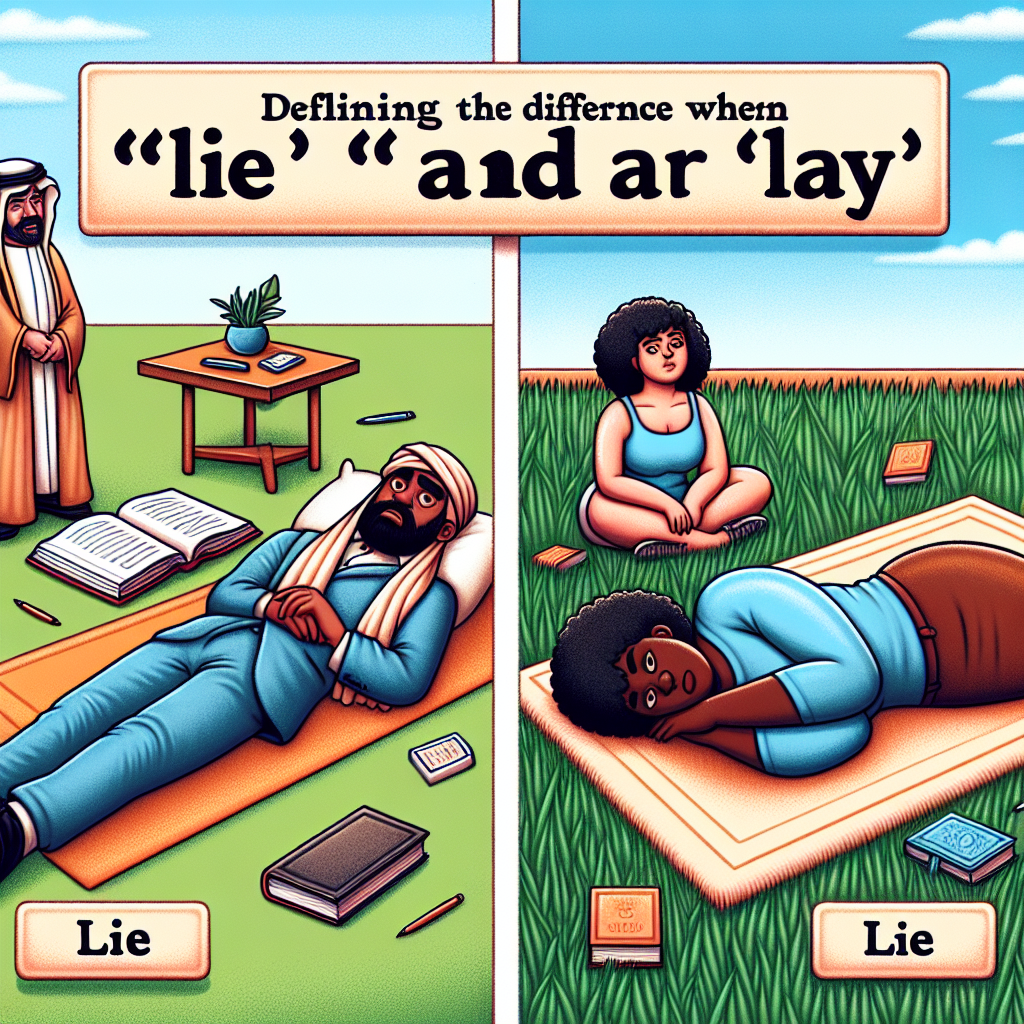Understanding the Difference between ‘lie’ and ‘lay’
Introduction
Transitioning from the confusing use of ‘lie’ and ‘lay’ can leave you feeling perplexed. Bursting with questions, the distinction between these two words can seem elusive. Let’s delve into the definitions and usage of ‘lie’ and ‘lay’ to bring clarity to this linguistic puzzle.
Defining ‘Lie’
‘Lie’ refers to the act of reclining in a horizontal position. This simple concept can cause a burst of confusion for many. Understanding when to use ‘lie’ in place of ‘lay’ is essential for effective communication.
Examples of ‘Lie’ in Context:
– “I will lie down and rest for a while.”
– “The cat loves to lie in the sun for hours.”
Defining ‘Lay’
‘Lay’ is used when referring to placing an object down in a horizontal position. This distinction can be a source of perplexity for writers. Learning the correct usage of ‘lay’ is crucial for clear and concise writing.
Examples of ‘Lay’ in Context:
– “Please lay the book on the table.”
– “She laid the blanket carefully over the sleeping child.”
Key Differences
The burstiness of confusion arises from the similarity in spelling and pronunciation of ‘lie’ and ‘lay.’ Internalizing the distinction between these two words can eliminate the perplexity often associated with their usage.
Using ‘Lie’ vs. Using ‘Lay’
– ‘Lie’ is used when referring to reclining or being in a horizontal position.
– ‘Lay’ is used when placing an object down in a horizontal position.
Common Mistakes
A high degree of perplexity often surrounds the incorrect usage of ‘lie’ and ‘lay.’ To avoid falling into this linguistic trap, pay careful attention to the context in which these words are used.
Common Mistakes to Avoid:
– Using ‘lay’ when ‘lie’ is the correct choice.
– Confusing the past tense forms of ‘lie’ and ‘lay.’
Practice Makes Perfect
The best way to overcome the perplexity of ‘lie’ and ‘lay’ is through practice. By incorporating these words into your daily writing, you can strengthen your understanding of their correct usage.
Practice Sentences:
– “I will lie down and read a book.”
– “Please lay the plates on the table for dinner.”
Conclusion
In conclusion, the distinction between ‘lie’ and ‘lay’ may seem elusive at first glance. By mastering the definitions and proper usage of these words, you can eliminate the burstiness of perplexity that often accompanies their use. Keep practicing and referring back to this guide to solidify your understanding of ‘lie’ and ‘lay.’
Remember to visit EditMojo for more writing tips and resources.
#Defining #difference #ʼlieʼ #ʼlayʼ
